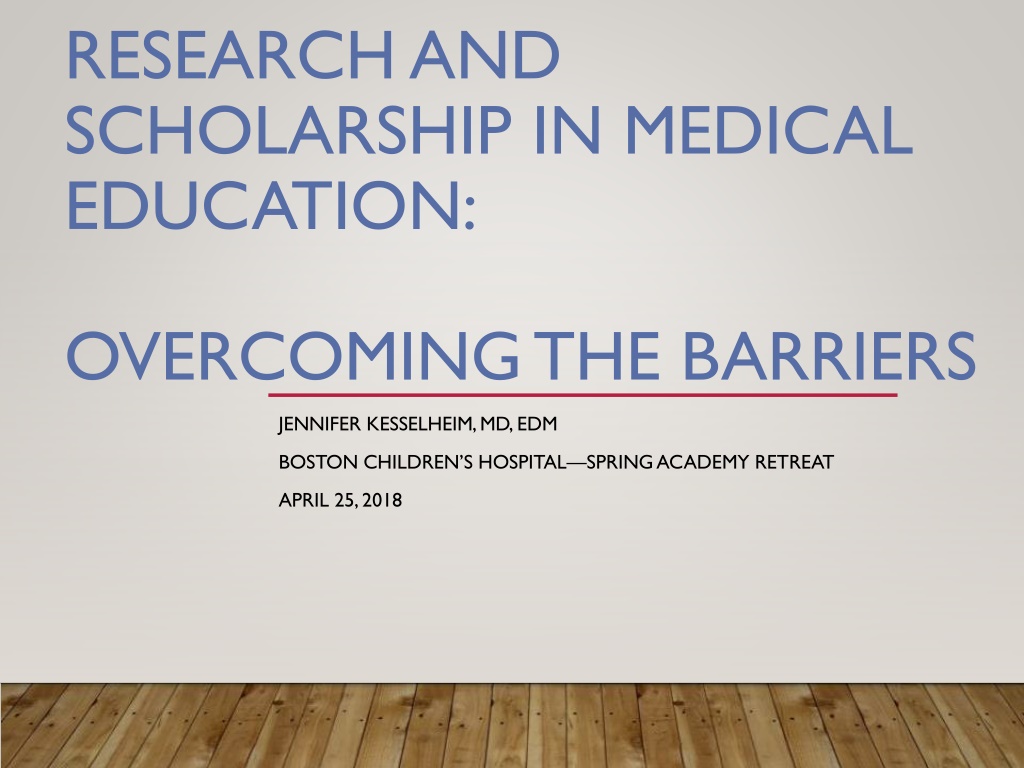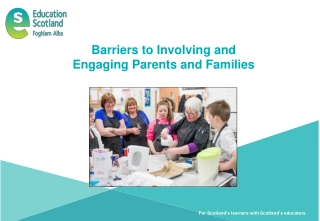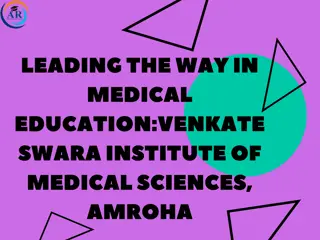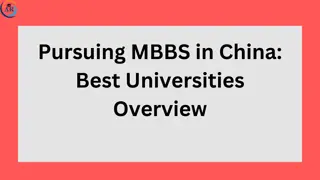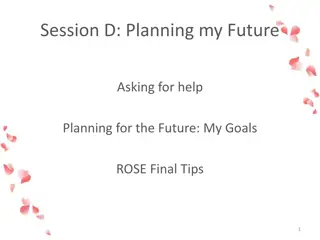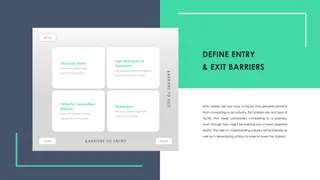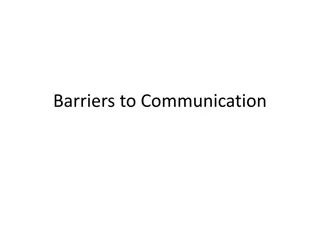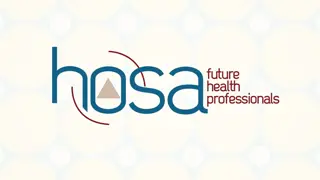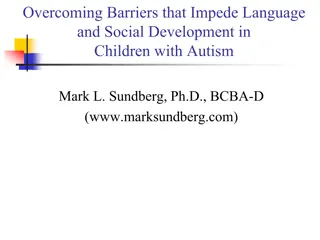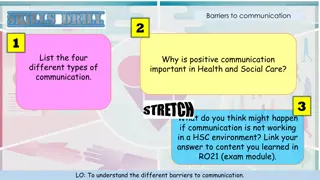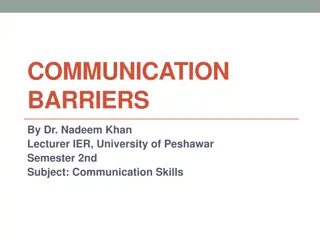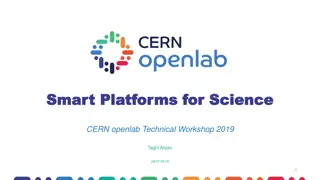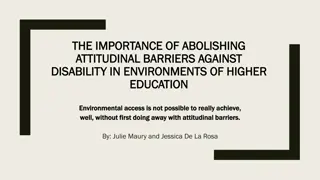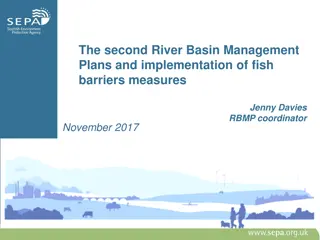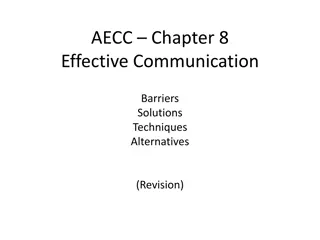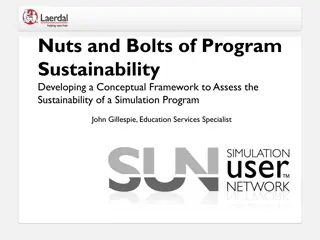Overcoming Barriers in Medical Education Research
Explore the challenges in conducting research in medical education, emphasizing the importance of evidence-based practices and the need for educators to engage in scholarly activities. Highlighted obstacles include lack of research training, time constraints, and funding issues faced by investigators. The narrative underscores the significance of aligning educational research with clinical standards to enhance the quality of teaching and learning experiences.
Download Presentation

Please find below an Image/Link to download the presentation.
The content on the website is provided AS IS for your information and personal use only. It may not be sold, licensed, or shared on other websites without obtaining consent from the author. Download presentation by click this link. If you encounter any issues during the download, it is possible that the publisher has removed the file from their server.
E N D
Presentation Transcript
RESEARCH AND SCHOLARSHIP IN MEDICAL EDUCATION: OVERCOMING THE BARRIERS JENNIFER KESSELHEIM, MD, EDM BOSTON CHILDREN S HOSPITAL SPRING ACADEMY RETREAT APRIL 25, 2018
BEGIN WITH A STORY Inspired by a pediatric oncologist who trained me during fellowship Influential investigator Led numerous clinical trials Grant funded Moving the field forward Expert clinician Inspirational teacher Knowledgeable Dedicated to the training mission Facile with the evidence contributing to best practice Seized every teachable moment Provided mentorship
WHAT DOES PUBMED SAY? Evidence of his clinical expertise Numerous clinical practice guidelines, review articles Documentation of his research success Myriad clinical trials published First author, senior author, middle author Decades of contribution Teaching?
THE PROBLEM The medical literature is filled with reports of clinical innovation and research We document our experiences, good or bad Allows the community to learn, progress In the clinical arena, we demand evidence When it comes to our teaching, we have been less demanding
NOTHING WORTH DOING COMES EASILY! Small sample sizes Participants learn over time no matter what we do Time between the learning and the expected outcome may be long IRB issues Research participation fatigue Many educators lack training in research
LIFE OF THE INVESTIGATOR Protected time difficult to secure Competing demands Buy-in from supervisors may be a challenge Research may be undervalued by colleagues Grants are few Lack of collaborators Isolation
WHY DO EDUCATION RESEARCH? Practice evidence-based education Similar standards as we expect in clinical practice Delivers higher quality to our learners Allows for dissemination of our best work Speak the language of our colleagues Measure outcomes of our efforts Justify resources needed for our programs Advance our careers
DO NOT OMIT THIS STEP! Strengthens your project to have their input Gets things down on paper Limits publication Ethical ramifications Education projects are often deemed exempt from full review Expedited review or quality improvement
CRITERIA FOR EXEMPTION Research conducted in established educational settings, involving normal educational practices Eg: research on effectiveness or comparing instructional techniques, curricula Research involving the use of educational tests, survey procedures, interviews or observation of public behavior UNLESS Subject could be at greater than minimal risk Confidentiality cannot be maintained Research involving the collection or study of existing data, documents, records without subject identification
TIPS FOR WORKING WITH THE IRB Leave enough time and be efficient! Email or call with inquiries before submission Remember administrative review comes first Collaborators often need to work through their own IRB Remain open to feedback and refinement of your project Designation of exemption must be made by IRB (not you)
TIPS FOR WORKING WITH THE IRB Balancing risks and benefits for subjects Risks are usually low but must be explained honestly Especially if patients or families involved Largest risk is often confidentiality Employment and advancement Privacy considerations Incentives or compensation Avoiding undue influence and coercion Ensure voluntariness
FINDING COLLABORATORS A great strategy to boost your study population size and sample size! Potential collaborators are likely to be receptive! Local HMS Academy HMS/PME leadership Hospital-based Academies GME Community National Professional organizations Personal contacts, mentor contacts
STARTING SOMEWHERE A small study is a great first step, especially if data are convincing Provides pilot data to allow for larger study Collaborators Funders Really Good Stuff in Medical Education 500 words, no tables/figures, short report on an innovation What problem was addressed? What was tried? Lessons learned?
USE METHODS TO YOUR ADVANTAGE Some studies do not require a p value to have impact Qualitative methods Interviews Focus groups Blended or mixed-methods approach Workshops later this afternoon
JOIN A RESEARCH SCHOLAR GROUP!! Groups of BCH Academy members who present new research ideas and works in progress Group feedback Two faculty facilitators and statistician Compile feedback from the discussion Great venue for strategizing about challenges of small sample size
WHEN TIME IS LIMITED Leverage work you are already doing to innovate and improve training Engage in a thorough literature search Is your intervention truly novel? Add a component of outcome measurement What did we accomplish? Articulate a specific question and investigate its answer Workshop
PROGRAM EVALUATION Results Final results that occurred due to program participation, in vivo A change in behavior caused by participation in the program Behavior A change in attitudes, knowledge, or skill Learning How the participants react to the experience, satisfaction Reaction Kirkpatrick DL and Kirkpatrick JD. Evaluating Training Programs: the four levels. 2006.
Question 1 % Agree or Strongly Agree Question 2 Question 3 Question 4 Question 5 Faculty Fellows Question 6 0 10 20 30 40 50 60 70 80 90 100 Question 1: This session touched on issues important in fellowship training Question 2: This session stimulated reflective communication on this topic Question 3: This case vignette was useful to the group discussion Question 4: This session helped us identify useful coping skills for the future Question 5: Sessions of this type are valuable parts of the overall fellowship curriculum Question 6: I am looking forward to engaging in more sessions of this type
CLOSING COMMENTS There are a lot of reasons NOT to do medical education research Numerous barriers Can be overcome! The field must move forward for the good of teachers, learners and our patients Research is critical component of our progress Good luck!
CONTACT Jennifer Kesselheim jennifer_kesselheim@dfci.harvard.edu (617) 632-2423
